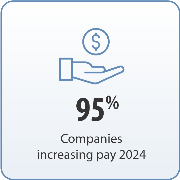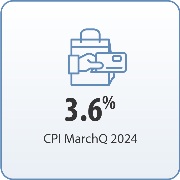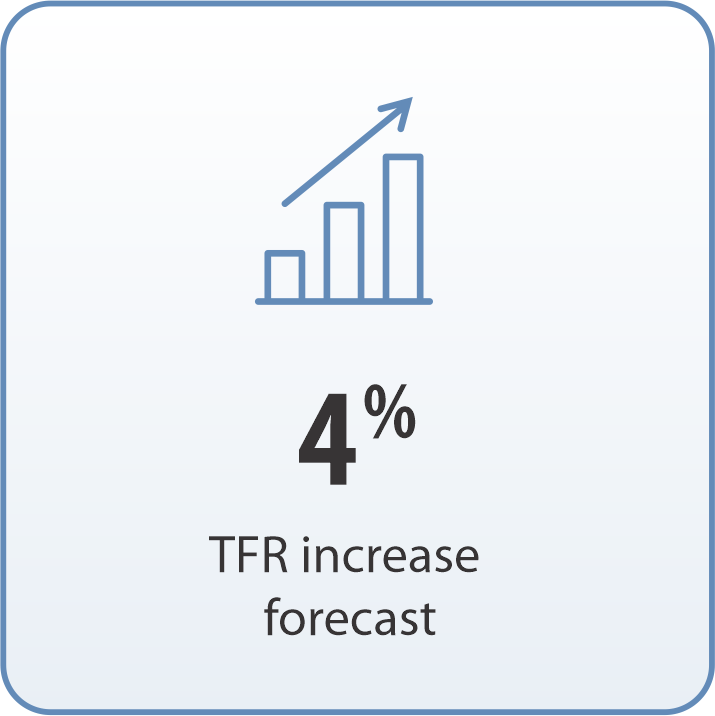Navigating the essentials of pay review decisions

Many organisations are preparing to undertake annual pay reviews as a new financial year beckons. Amidst ongoing concerns about remuneration costs and employee expectations, these are the major factors every property business should be weighing up.
Persisting cost-of-living pressures are pushing employees to look to their annual pay review to help them keep pace with rising prices.

While 95% of property employers anticipate giving pay rises this year, according to Avdiev’s 2024 Property Industry Remuneration Report, most employers feel heightened pressure from staff expectations for sizeable increases and more frequent requests for mid-cycle adjustments.
A tight labour market and skills shortages add further pressure, with replacement of key staff remaining difficult and costly – including pay premiums to attract talent, recruitment and training costs, admin time, and productivity lags.
Indeed, employers cite managing the remuneration budget as their biggest challenge around staff compensation in 2024.
Understanding the remuneration environment will be essential to retaining valued and experienced staff, while keeping budgets under control.
Order your copy of the 2024 Avdiev Property Industry Remuneration Report for a comprehensive, objective view of prevailing market rates for 360+ roles across all property sectors, including investment, development, building and construction, agency, advisory, consultants, retirement living, and retail management.
Economic context
The 2024 Federal Budget will be unveiled on Tuesday, 14 May. We can expect to see some policies aimed at alleviating cost-of-living pressures, including the already announced Stage 3 income tax cuts plus hints of relief for student HECS debts and the introduction of superannuation payments on government-funded parental leave.

Interest rates take on renewed focus since ABS figures showed inflation accelerating slightly in March. Monthly CPI rose 3.5%, up from 3.4% in previous months. Quarterly inflation continued to fall, however, to 3.6% for the March quarter. The next interest rates decision will be announced on 7 May.
Currently, the RBA expects GDP growth of 1.5% in 2024, below historical averages. Tepid growth is forecast to persist over the next four years.
In a brighter note for employers, labour market conditions are expected to ease further, to be broadly consistent with sustained full employment. Seasonally adjusted unemployment sits at 3.8% as of March 2024.
State of the industry
Economic conditions, interest rates and rising costs deeply impacted activities and performance within the property industry in 2023. In March this year over half of surveyed businesses (55%) said they are performing “moderately” – neither well nor badly. This marked a noticeable drop on six months earlier.
Nevertheless, businesses collectively report an overall positive outlook for 2024: 35% anticipate improved conditions, while half (53%) expect little to no change. Few foresee deteriorating conditions.
Plans for pay increases
This glass-half-full sentiment is encouraging all but 5% of companies to factor in staff pay rises this year.
Our March 2024 survey found that “the usual” increase is planned for around half of all staff. Some 15% of companies expect to provide increases that catch up with the wider market, while 30% of employees can expect to receive a minimal increase.

Respondents forecast average rises of 4% (excluding the Superannuation Guarantee increase of 0.5% to 11.5% from 1 July) – below the average increase of 2023 of 4.7%. Figures vary by property sector, with full breakdowns available in the 2024 Property Industry Remuneration Report.
Pay equity
A more concerted effort to close the gender pay gap has emerged after the Workplace Gender Equality Agency made individual company data public for the first time earlier this year. It puts the national gender pay gap at 21.7%.
Companies have advised us that a primary focus for remuneration in 2024 is to redress any inequities in pay rates within their organisation. Avdiev Report’s objective remuneration data – free of any gender bias – can help facilitate this.
Non-monetary benefits
One final consideration, skills shortages and budgetary constraints are seeing companies place a growing emphasis on non-monetary benefits for staff.
Some relate to paid perks, including additional super benefits and more favourable parental leave. Others take a more wholistic view of company culture, including flexible work arrangements, expanded professional development, and becoming industry-recognised employers of choice.
We trust this newsletter has been helpful in your remuneration deliberations. Our latest property industry remuneration data is available now, with a full page analysis for each of the 360 positions included, plus details on remuneration forecasts and trends.


